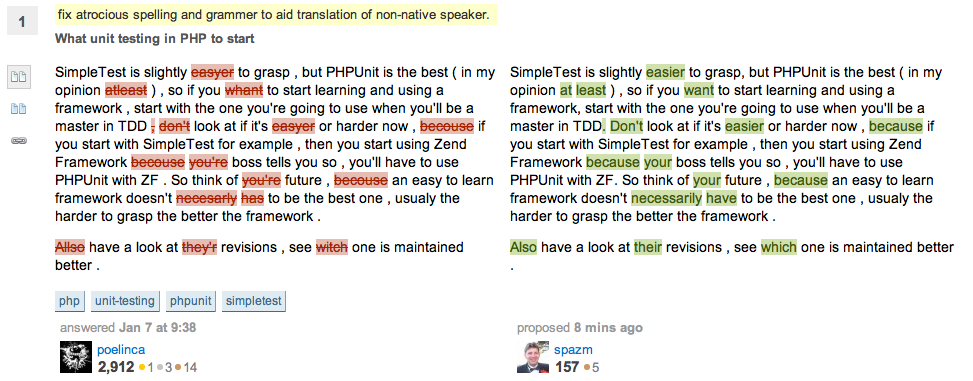I've been seeing lots of suggested edits recently that are simple spelling and grammar fixes:
I've tended to reject several of these, because they're not really substantial edits. From an old blog post of Jeff's:
If you are going to edit a post, make sure you’re substantively improving it. Avoid making isolated, trivial edits, as they are the source of much friction. For example, don’t bother changing “its” to “it’s” unless you have several other edits to make in the same post. There has to be a legitimate case that your edit made multiple changes transforming the post from good to great — or at least substantively improving it.
However, there are some such edits which clearly provide huge readability improvements (not to mention taking a lot of effort to make the edits):


Considering the goals & repercussions of approving edits:
- We want to improve the general quality (and this includes readability) of questions & answers
- ...but, we have CHAOS to do this for us — but they're not on every SE site, and can't do everything anyway
- Users gain reputation (to a certain extent) from having their suggested edits approved
So how should I decide whether to approve these edits? Should I reject them all? Only approve really extensive ones like the 2nd and 3rd examples above? Or should I instead choose to "Improve" and submit the edit myself, to provide the same improvement in post quality without giving rep to users for "insubstantial" edits?

